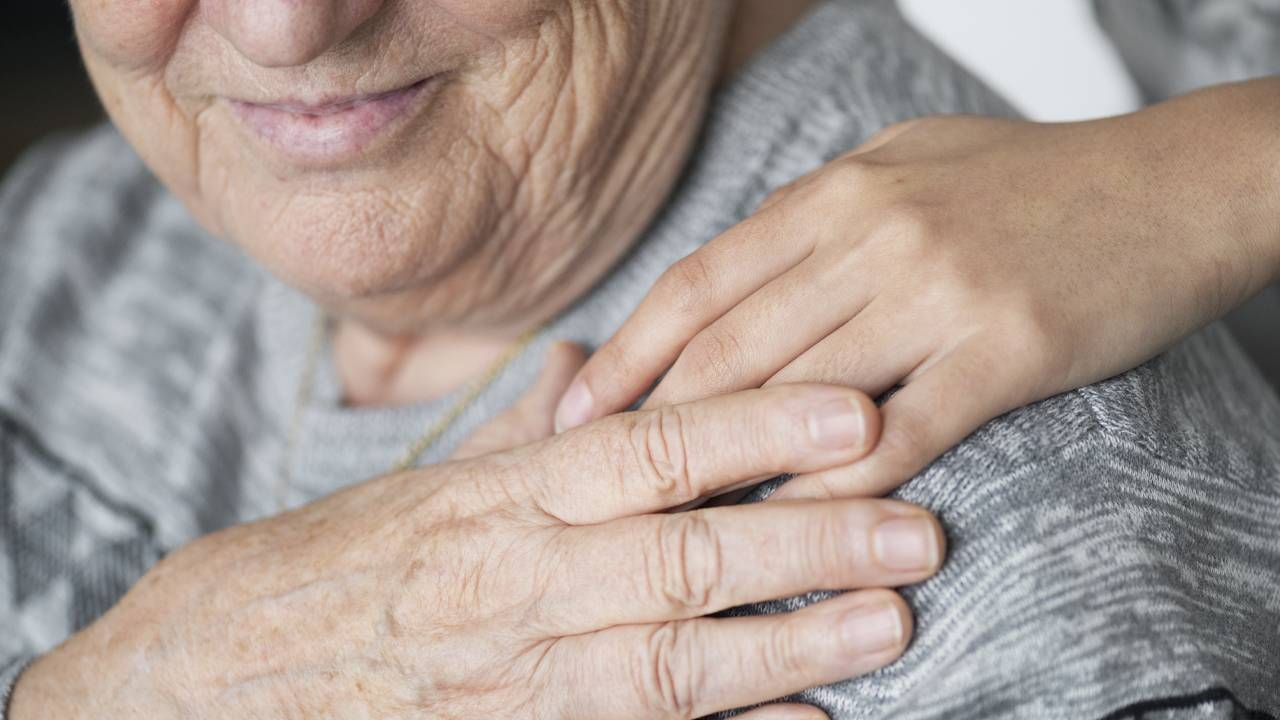OPINION: Unpaid Caregivers Need Care, Too
We need to recognize, and assist, this invisible workforce
As has been so brutally apparent throughout this pandemic, older adults are one of the most vulnerable populations to COVID-19, dealing with physical and emotional repercussions unimaginable to many members of society. But behind many of these people is the all too often invisible workforce of family caregivers, those who have taken on the responsibility of caring for the older adults in their lives.

In this holiday season, a spotlight must be shone on this invisible workforce — one made even more invisible by this devastating virus — because it is clear that caregivers need our support now more than ever.
An estimated 53 million individuals in the U.S. are currently providing care for someone else. The term "family caregiver" can refer to anyone who's not getting paid to help others who cannot manage daily tasks independently. Caregivers can be friends, partners, relatives or neighbors, and the type of care they provide varies dramatically. While some assist exclusively with household chores, others might need to help with such deeply personal tasks as bathing or eating.
For some people, caregiving is rewarding, and it can even provide a sense of purpose. But for many others, caregiving is primarily a challenge.
As the program director of the Caregiver Support Program at JASA, an organization dedicated to serving the diverse needs of older adults in New York City, I am acutely aware of the difficulties caregivers so often face. Caregiving can be inconvenient, time-consuming, confining and isolating.
Every one of us can step forward and step in, making it clear that we are available for caregivers.
The job can be a financial burden on the caregiver, with many individuals being forced to leave their paid positions to give full-time care while continuing to provide food, pharmacy supplies and other daily essentials for their care recipients. Caregivers often suffer from sleep deprivation and loss of personal time. In many cases, they must also deal with the emotional stress of seeing a loved one change, often for the worse.
Compound all that with the devastating toll of COVID-19, and unpaid caregiving becomes even more of an uphill battle.
I've heard from caregivers in my program who now agonize over previously simple questions, such as whether to call 911 for an older adult. COVID-19 has added the extra pressure of knowing that a hospitalization might mean exposing them to a higher-risk environment and separating them from their only lifeline — their caregiver. This is the kind of challenge that no one should have to face alone.
Care For the Caregiver
It is the mission of JASA's Caregiver Support Program to provide caregivers with the support they all too often go without. My colleagues and I are always reminding our clients to take care of themselves, pointing out that they will not be of any help to someone else if they are physically and emotionally exhausted. We warn them of the signs of burnout and try to encourage them to take steps to prevent reaching that point.
To that end, we urge caregivers to educate themselves about their care receiver's condition so they have a better idea of what to expect, and we try to convince them to set realistic goals. We suggest various resources that make life a little easier, such as transportation services or doctors who make house calls. And we recommend recognizing and savoring the good moments whenever they occur. Most of all, we beg, beseech and implore caregivers to seek help from others.
This is where you come in. Every one of us can step forward and step in, making it clear that we are available for caregivers — whether that's for errands, for visits or simply for middle-of-the-night talks when the caregiver feels overwhelmed.
Almost every one of us will at some point be either a caregiver or a care receiver.
We can encourage our caregiver friends, neighbors and relatives to take advantage of community programs like mine that provide information and care-related supplies, as well as services such as training workshops and support groups which enable people to join with others who are in the same boat.
Most important for many are respite services, crucial for allowing caregivers some time off to relax or at least regroup. Caregivers are people too, and they sorely need the occasional relief from their responsibilities and the freedom to do something for themselves.
Sadly, limits to funding for groups like ours mean limits to respite. Increased funding could make all the difference for someone needing a break and could lead to additional improvements in caregiver lives through research into other policy changes as well.
It is therefore incumbent upon us all to urge our country's elected officials to provide increased financial assistance for caregivers.
We need to keep caregivers in mind beyond the holidays, and we must advocate for this essential workforce to get the real support it deserves. Considering that almost every one of us will at some point be either a caregiver or a care receiver, I can think of no better investment of our energy.


